Contrary to popular interpretation, the parables of the Mustard seed and the Yeast are not synonymous. An examination of Luke 13:18-21
Mashal (Parable) of the Mustard Seed 18 Then Yeshua (Jesus) said, “What is the Kingdom of G-d like? How can I illustrate it? 19 It’s like a tiny mustard seed that a man planted in a garden; it grows and becomes a tree, and the birds make nests in its branches.” Mashal (Parable) of the Yeast 20 Yeshua also asked, “What else is the Kingdom of G-d like? 21 It’s like the yeast a woman used in making bread. Even though she put only a little yeast in three measures of flour, it fermented every part of the dough.” Introduction: This chapter of Luke’s gospel records a number of positive and negative examples of actions taken within the Kingdom of G-d. In order to understand the fullness of what the Kingdom of G-d entails we must first understand the simple and often overlooked fact that the kingdom of G-d exists both within and without and has existed from before the creation of the world. Luke 17:20-21King James Version (KJV) “20 And when He was demanded of the Pharisees, when the kingdom of G-d should come, He answered them and said, The kingdom of G-d cometh not with observation: 21 Neither shall they say, Lo here! or, lo there! for, behold, the kingdom of G-d is within you.” Matthew 25:34King James Version (KJV) “34 Then shall the King say unto them on his right hand, Come, ye blessed of My Father, inherit the kingdom prepared for you from the foundation of the world:” Colossians 1:16King James Version (KJV) 16 For by Him (Yeshua) were all things created, that are in heaven, and that are in earth, visible and invisible, whether they be thrones, or dominions, or principalities, or powers: all things were created by Him, and for Him: Acts 17:28King James Version (KJV) 28 For in Him (G-d) we live, and move, and have our being; as certain also of your own poets have said, For we are also his offspring. This might be considered convoluted or overly complicated but the truth is that it’s very simple. How do we define the kingdom of G-d? The kingdom of G-d is that which is under the Rule of G-d. Who and what are under to the rule of G-d? All beings, all things, all subjects, all objects, everything. The kingdom is past, present and future; we see it incomplete only because we’re unable to see ourselves complete from within time. The complete self sees the complete kingdom. G-d sees us perfected in His Son from the foundation of the world. Ephesians 1:4 King James Version (KJV) “4 According as He (G-d) hath chosen us in Him (Yeshua) before the foundation of the world, that we should be holy and without blame before Him (G-d) in love:” Revelation 13:8 King James Version (KJV) “The Lamb (Yeshua) slain from the foundation of the world.” G-d is and has and will always be King. Some acknowledge this pre-existing truth and are saved, others refuse it and are lost. Mashal (Parable) of the Mustard Seed: 18 Then Yeshua (Jesus) said, “What is the Kingdom of G-d like? How can I illustrate it? 19 It’s like a tiny mustard seed that a man planted in a garden; it grows and becomes a tree, and the birds make nests in its branches.” –Luke 13:18-19 Yeshua has recently warned of the guilt of every human being (Luke 13:1-5). He has likened the people of Israel and her teachers to a fruitless fig tree (Luke 13:6-8). And, He has healed a woman on the Sabbath (Luke 13:9-17). Following the two mashlim of the Mustard seed and the Yeast, He will speak of the narrow gate and present the kingdom of G-d as the New Jerusalem, a city that every righteous one from every nation will enter into. This is followed by His grief for the current state of the city of Jerusalem and the people of Israel. Notice the rhythm that is created here. A positive presentation of the kingdom’s end goal (already complete outside of time) is juxtaposed against a negative present consequence of the kingdom, infected by sin (present temporary incomplete state within time). Luke 13:22-35 It’s this rhythm that allows us a wider scope of understanding when we examine the mashlim of the Mustard seed and Yeast together. Contrary to popular interpretation, they are not synonymous, rather, they’re a juxtaposition, in the one (Mustard seed) we see the completed future kingdom, in the other (Yeast) we see the sin affected present kingdom. G-d is King over both Kingdoms, Yeshua reigns over both Kingdoms. 18 Then Yeshua (Jesus) said, “What is the Kingdom of G-d like? How can I illustrate it?” It’s important to note that in both this parable and the following one, Yeshua is offering an illustration. He is not saying that the kingdom of G-d is like a mustard seed, rather He is saying that the kingdom of G-d is illustrated by the whole of the process of a mustard seed’s participation in the growth of the tree and the residing birds. 19“It’s like a tiny mustard seed that a man planted in a garden; it grows and becomes a tree, and the birds make nests in its branches.” First of all, many western thinkers are confused by this parable because they are familiar with the small form of the mustard plant that grows in many western countries, it is in fact a different variety from the tree variety found in Israel and the Middle East. Secondly, we should note that the mustard seed is known for its tiny appearance. Like Yeshua, the rabbis’ used the mustard seed in figures of speech conveying smallness (B’rakhot 31a and Leviticus Rabbah 31:9). Thirdly, we should make note of the fact that it is a man who plants the mustard seed, where as in the parable of the bread it is a woman who adds the yeast. This is of significant theological importance with regard to Jewish teaching. (This has symbolic meaning. I am in no way suggesting that men are more righteous than women. Life experience tells me otherwise.) Fourthly, the mustard seed is seen here as a positive participant. In fact the mustard seed and the plant itself are tenacious, able to grow in arid conditions, between rocks and from within walls. It will grow to adulthood regardless of the harshness of its environment. The mustard seed and tree are a symbol of positive chutzpah (tenacious strength). Finally, the birds here are not pictured as attacking the tree or defiling it in any way as is sometimes the case when carrion attack a carcass. Here the birds are making their home, nesting and finding security. This is most reminiscent of the Scriptures: Ezekiel 17:23; Daniel 4:12, 14, 21-22. Ezekiel 17:23English Standard Version (ESV) “On the mountain height of Israel will I plant it, that it may bear branches and produce fruit and become a noble cedar. And under it will dwell every kind of bird; in the shade of its branches birds of every sort will nest.” These birds are the righteous from among the nations, gathered in the tree of G-d’s sheltering kingdom. This is a picture type for the righteous among the nations and their gathering in the New Jerusalem at the end of the age. This is clarified by Yeshua’s words in the latter part of this chapter, verses 22-30. Mashal (Parable) of the Yeast: 20 Yeshua also asked, “What else is the Kingdom of G-d like? 21 It’s like the yeast a woman used in making bread. Even though she put only a little yeast in three measures of flour, it fermented every part of the dough.” As I have stated previously, many see these two parables as being synonymous, I do not. I believe Yeshua is continuing the rhythm of teaching that is evident throughout this chapter. He is using to opposing representations of the kingdom to show that it is now and not yet fully. Complete outside of time but has been suffering under sin (yeast) within time. Yeshua also asked, “What else is the Kingdom of G-d like? 21 It’s like the yeast a woman used in making bread. One of the most compelling reasons to reject the standard misinterpretation of the parable of the Yeast, is the symbol of yeast itself. Aside from the extra biblical evidence for the Jewish cultural understanding of yeast as a symbol of sin, there are numerous Biblical references regarding the significance of yeast as a symbol of sin: Exodus 23:18New International Version (NIV) 18 “Do not offer the blood of a sacrifice to me along with anything containing yeast. “The fat of my festival offerings must not be kept until morning. Mark 8:15New International Version (NIV) 15 “Be careful,” Jesus warned them. “Watch out for the yeast of the Pharisees and that of Herod.” 1 Corinthians 5:6-7 6 Your boasting is not good. Don’t you know that a little yeast ferments the whole batch of dough? 7 Get rid of the old yeast, so that you may be a new unfermented batch—as you really are. For Messiah, our Passover lamb, has been sacrificed. These are just three of 52 Biblical passages that identify yeast as representing sin. Those who oppose the interpreting of the yeast in this mashal as sin are able to site only one obscure extra biblical sage in rebuttal. This parable is not the exception to the rule, it is the exceptional teaching of the Ruler, using an immutable symbol of sin to convey the reality of the present, temporary state of His kingdom. Yeast was and is a symbol of sin in Judaism. This is undisputable. Therefore it cannot symbolize the positive influence of the gospel in this parable. As in the previous parable, Yeshua is not saying that the kingdom of G-d is like yeast (sin), yeast is part of the illustration that shows what the kingdom of G-d is like (within time). Notice that the yeast is added to the dough by a woman rather than a man. In the previous parable it was a man (Son of Man) that provided the seed for planting. This is reminiscent of the Farmer who sowed the seed in the parable of the sower. The Farmer represented G-d Himself and in the previous parable the sower of the mustard seed represents Yeshua Himself. Here however the yeast is added by a woman rather than a man. Symbolically speaking, this is a reference to the entry of sin into the kingdom of G-d on earth. Genesis 3:6New King James Version (NKJV) 6 So when the woman saw that the tree was good for food, that it was pleasant to the eyes, and a tree desirable to make one wise, she took of its fruit and ate. She also gave to her husband with her, and he ate. This subtle but profound difference is yet another proof that the parable of the yeast is about the negative effect of sin upon the kingdom rather than the spread of the gospel. It is blasphemous to suggest that the gospel is like yeast (sin). Even though she put only a little yeast in three measures of flour, it fermented every part of the dough.” With regard to this last line of the parable I think Shaul/Paul the apostle says it best: 1 Corinthians 5:6-7 6 Your boasting is not good. Don’t you know that a little yeast ferments the whole batch of dough? 7 Get rid of the old yeast, so that you may be a new unfermented batch—as you really are. For Christ, our Passover lamb, has been sacrificed. Halakhah (The Way We Walk/The Way We go Forth) In light of this chapter of Luke and in particular the two distinctly different parables of the Mustard seed and the Yeast, how do we walk our faith? We are faced with the age old choice between accepting the influence of yeast (sin), or receiving the seed (gospel). The former requires great effort and brings weariness to the soul, the latter is a life giving gift that rests in the branches of eternity. © Yaakov Brown 2015 ”You shall not take the name (Ha-Shem) of the L-rd (יהוה) your G-d in vain; for the L-rd (יהוה)will not hold him guiltless that takes His name in vain.” The Torah sates:
Shemot/Exodus 20:7 ”You shall not take the name (Ha-Shem) of the L-rd (יהוה) your G-d in vain; for the L-rd (יהוה)will not hold him guiltless that takes His name in vain.” Recently I’ve had a number of people ask me about the (so called) special name of G-d, “Yahshua, Yahashuah”. I have also noticed more and more followers of Yeshua/Yehoshua/Jesus (Linguistically legitimate renderings of the Messiah’s name), using this abomination on face book and the internet. Suffice to say, I’m disgusted and angered by this desecration of G-d’s name. As a Jew I’m disgusted by the fact that foolish people have chosen to misuse the Holy Name YHVH (Which, due to it’s protection is known to be unpronounceable). We know that the mispronunciation Jehovah is due to a misunderstanding of the vowel markings for Adonai appearing beneath the Hebrew characters for the Holy Name, this is unfortunate but forgivable given the confusion. However in the case of the present desecration certain misguided people have purposefully misused the Holy Name, making a contraction out of it that defiles both it and the name of our Messiah. As a follower of the Messiah Yeshua/Jesus, I am equally disgusted at the defiling of His name, which means, “Salvation, The L-rd is my Salvation”. Therefore what follows are the actual facts concerning the desecration, “Yahshua/Yahashuah”. I share this as a warning, “for the L-rd (יהוה)will not hold him guiltless that takes His name in vain.” The Name: The Holy Proper Name of G-d YHVH (יהוה) is unpronounceable. Why? Because for thousands of years Jews have held it sacred. The Masoretes (6th Century A.D. Jewish Scribes) protected it’s pronunciation by placing the vowel markers (Nikudot) for the Hebrew name Adonai (lord) below the characters of the Holy Name YHVH. This was to ensure that the name Adonai would be pronounced in place of the Holy Name. In all other instances the observant Jew pronounces the Holy Name YHVH as, “Hashem,” which literally translates, “The Name”. In doing so we avoid desecrating The Name. Scholars agree, that were we to hazard a guess at the original pronunciation, our best guess would be “Yahveh or Yahweh,” however, it’s important to note that this is our best educated guess. Jesus name in Hebrew: The name, Jesus is simply an English translation of the Greek, “Yesoos,” which in turn is a transliteration of the Hebrew, “Yehoshua, Yeshua,” meaning, “The L-rd Saves”. Any attempt to liken to the name of the Greek god Zeus is utter nonsense, there are no legitimate linguistic grounds for doing so. On a spiritual level it is a lie at best and at worst it is blasphemy! Yahshua/Yahashuah: A number of modern bible teachers and Christian/Messianic/Hebrew Roots leaders (false Shepherds all) claim that the name Yahshua/Yahashuah is the correct pronunciation of the Holy Name and or the name of the Messiah. This name is said to combine the names YHVH and Yeshua/Yehoshua. I can only surmise that these individuals have no real understanding of the Hebrew language or are simply uneducated in general. If they claim to be filled with the Holy Spirit, then we must also ask why they have resisted Him regarding this. The Hebrew language does not allow for the contraction of these names, it is linguistically incorrect to join them, and doing so makes a mockery of both names. In fact, the real root of this teaching is not the Holy Spirit but the spirit of occult. It is an attempt to defile the minds and mouths of followers of Messiah. Yahshuah: The blasphemous name, “Yahshuah,” was originally found in the works of Athanasius Kirchner, Johann Baptist Grossschedel (1619) a Jesuit Christian occultist and in subsequent Renaissance esoteric sources. Please read the excellent article link below: http://en.wikipedia.org/wiki/Yahshuah Yahshua: The blasphemous name, “Yahshua,” is the progeny of the more recent Sacred Name movement. The English spelling Yahshua originates at least as early as 1950 from associated teachings dated as early as the 1930’s. This is a misguided attempt to unify the names Yeshua and YHVH, without due consideration to the linguistic nature of this contraction. The irony is that in attempting to show Yeshua as divine by uniting His name with YHVH, they have in fact impugned His nature as the fully G-d and fully man Messiah of Israel. Hebrew linguistics do not allow for the combining of the two unrelated nouns YHVH and YeSHuA, Therefore "Yahshua" is a nonsense. Furthermore, this name is not attested to in antiquity or Scripture. The Sacred name cult teaches that the use of the name, “Yahshua,”—which is in fact a nonsense and not a name at all—will aid a person’s salvation. This is in direct contradiction to the teachings of Scripture and makes the use of this blasphemous name a form of witchcraft. A secret knowledge of a sacred name used as a tool for our salvation can only be motivated by our own efforts to save ourselves, it spits in the face of grace and denies the power of Yeshua’s saving sacrificial death. Worse still, those who use it often consider themselves, “The true Church,” thus denying the salvation of numerous other Christians throughout the world. Any effort we view as being necessary on our part for earning salvation is a deception which teaches works based salvation and therefore contradicts the Gospel of Messiah. Ephesians 2:8-9 King James Version (KJV) For by grace you are saved through faith; and that not of yourselves: it is the gift of G-d: Not of works, lest any human being should boast. Please read the excellent article link below: http://en.wikipedia.org/wiki/Yahshua I would like to direct your attention to an article written by a man who has a Ph.D. in semitic languages and is a scholar of great renown in the Messianic Jewish community worldwide, Doctor Michael Brown: http://old.askdrbrown.org/ask-dr-brown/35-ask-dr-brown/79-what-is-the-original-hebrew-name-for-jesus-and-is-it-true-that-the-name-jesus-greek-isssous-is-really-a-pagan-corruption-of-the-name-zeus In conclusion I give this warning to those who are using these names and teaching others to do the same: Shemot/Exodus 20:7 ”You shall not take the name (Ha-Shem) of the L-rd (יהוה) your G-d in vain; for the L-rd (יהוה)will not hold him guiltless that takes His name in vain.” © Yaakov Brown 2015 "For as Jonah was in the belly of the great fish for three days and three nights, so will the Son of Man be in the heart of the earth for three days and three nights." --Matthew 12:40 This week I was asked by a local church, to bust a Christian myth. I chose to bust the myth that Yeshua (Jesus) was crucified on a Friday. The following slide presentation is the message I presented:
"Clean out the old leaven so that you may be a new loaf, just as you are in fact unleavened. For Messiah our Pesach (Passover) lamb has been sacrificed." --1 Corinthians 5:7 The Search “'For seven days you are to eat matzot — on the first day remove the leaven from your houses. For whoever eats chametz [leaven] from the first to the seventh day is to be cut off from Isra’el.'" --Shemot/Exodus 12:15 Bedikat chametz is the search for leaven that takes place prior to the Jewish moed (Holy remembrance) of Pesach (Passover). The search happens after nightfall on the evening before Pesach (the night of the 14th of the Hebrew month of Nisan.) It's an event that takes place as spring approaches in the land of Israel. "On the first day for matzot, when the Pesach lamb is slaughtered, Yeshua’s talmidim asked him, 'Where do you want us to go and prepare your Seder?'" --Mark 14:12 All of the lights in the house are turned off, and a candle is lit. The following blessing is then recited: In order to make sure chametz is found, several pieces of chametz are hidden, preferably by a child, prior to the practice of Bedikat Chametz.
It's traditional to use a feather and a wooden spoon to recover the chametz (leaven), when a piece of chametz is found the feather is used to sweep the piece of chametz into the wooden spoon, which is then used to place it in a paper bag. A candle is the traditional light source but it's acceptable to use a flashlight. In some traditions, searchers ring a bell to announce the discovery of chametz. In other words, they celebrate it's removal. Every room is searched and the collected pieces of chametz are then taken outside to be burned in a small fire. Thus the house is cleansed of all chametz (leaven). The Remez (Hint, Allegory) There are several significant symbolic elements in the practice of Bedikat Chametz:
The Darkness All who have refused the light of Messiah are living in darkness. It's impossible to find anything in the dark without a light. This means that both the awareness of sin and the joys of life are beyond the spiritual perception of those who have refused the salvation proposed by the Messiah Yeshua. Yeshua has said, "But if your eye is bad, your whole body will be full of darkness. If then the light that is in you is darkness, how great is the darkness!" --Mattitiyahu/Matthew 6:23 The Yeast (Chametz) In Messianic Judaism yeast (chametz) is without exception, a symbol of sin. Those who walk in darkness are unable to understand the true nature of sin because it's the light of Messiah, Who is the goal of the Torah, that exposes sin in our lives. Some believers are self condemning when they find that after years of following Messiah they are still finding sin in their lives that needs removal. However this is a not a sign that we are failing in our journey, rather it's a sign that Yeshua's light is still alive and at work in us. We have been redeemed and we are being sanctified, made holy. It is the person who observes no sin in themselves who is not walking with Messiah. The Light Messiah Yeshua Himself is represented in the light. "Then Yeshua (Jesus) again spoke to them, saying, 'I am the Light of the world; he who follows Me will not walk in the darkness, but will have the Light of life.'” --Yochanan/John 8:12 The first thing one notices when performing Bedikat Chametz, is that the light of a single candle can illuminate a dark room, exposing even the smallest remnants of leaven. We become aware that we are performing this task with our entire family, both our individual sin and our corporate sin is being exposed. It is impossible to hold the candle and sweep up the leaven at the same time, in this we see a metaphor for the spread of the light of Messiah through the lives of believers, who pass on His gospel to others, offering to reflect His light into their dark lives. It is also a picture of the role of the Ruach Ha-Kodesh our Helper, who brings to mind the light and teaching of our Messiah. "This is the judgment, that the Light has come into the world, and humanity loved the darkness rather than the Light, for their deeds were evil. For everyone who does evil hates the Light, and does not come to the Light for fear that his deeds will be exposed. But he who practices the truth comes to the Light, so that his deeds may be manifested as having been wrought in G-d.” --Yochanan/John 3:19-21 The Search The search reminds us that as believers we participate in right action as a result of the light of Messiah. There is no separation between belief and action, faith and halakhah, being and right doing. In Messiah, as in pre-hellenistic Judaism, there is no word for theology: thought is action and action is thought, inaction is thoughtless and thoughtlessness is inaction. Darkness is separation, light is unity. When we walk in the light we are participating in the unity of the body of Messiah. The Feather In ancient times, yeast is likely to have been found in lumps, today we often see it mixed into flour or in small granules. The feather is used because it's able to pick up even the smallest specs of leaven, thus removing all trace of the yeast. However, this applies only to what we can see, after all, there is leaven in the air, the entire creation has been affected by sin since the fall of humanity. Therefore we are reliant on the light to incinerate the remaining leaven in the atomosphere, hence the Torah provides a sacrifice for the unknown sins of the people. Yeshua is the only one who is able to fully cleanse us, we cannot invent our own light and remove our own sin, we are helpless without His sacrificial death and His victorious ressurection. It's in Yeshua that we find the light of G-d. G-d is light and in Him there is no darkness. The removal Yeshua has provided a means for the removal of sin from our lives. The Scriptures say: "If we confess our sins, He is faithful and just to forgive us our sins and to cleanse us from all unrighteousness." --1 Yochanan/John 1:9 Notice that the plural, "sins," is used. When we accept Yeshua's saving chesed (grace) we confess that we have sinned (plural) and that we are in need of His help. Thus He forgives our sins, past, present and future and sees us perfected outside of time. While we continue to be sanctified within time through His saving work, we are already secure outside of time because He is faithful and just and has already redeemed (past tense) us. The sin is taken outside the camp to be burned, Yeshua spoke of the torment of eternal punishment for those who refuse Him and remain intinsically attached to their sin: “Then the king told the attendants, ‘Tie him hand and foot, and throw him outside, into the darkness, where there will be weeping andgnashing of teeth.’" --Mattitiyahu/Matthew 22:13 The Burning The burning is an obliteration of sin, after the fire fades it is impossible to retrieve the yeast, it's completely gone. This is also true of the cleansing fire of our Messiah Yeshua. Like Shadrach, Meshach and Abednego (Daniel 3), the fire removes the bondage (ropes) of our sin but leaves us unscathed. Yeshua stands with us through the cleansing fire and we walk free in His arms. For those who reject Him the fire will consume both them and their sin. A House that has been cleansed of mildew and black mold need not be burned down, however a house that has been left to be permeated by black mold cannot be redeemed, it will be burned to the ground. The fire that comes from Yeshua's eyes is a cleansing light to those being saved and a burning torment to those being lost. "They will throw them into the blazing furnace, where there will be weeping and gnashing of teeth." ----Mattitiyahu/Matthew 13:42 The celebration Finaly we celebrate our freedom from sin. Nisan is the spiritual new year for Israel: “This month is to be for you the first month,the first month of your year." --Shemot/Exodus 12:2 We celebrate the opportunity to allow Messiah to shine His light into every room in our lives and the life of our community so that we can continue in the journey of being made holy. We celebrate the fact that we are no longer blind to sin, that we have been given the means to be free. It is for freedom He has set us free, that we might no longer walk in bondage and darkness unaided by light. We celebrate above all else, the light of our Messiah Yeshua and the chesed (grace, mercy and lovingkindness) of the Father HaShem as revealed to us by the Ruach Ha-Kodesh (Holy Spirit). © 2015 Yaakov Brown We don’t act righteously in order to win His approval, on the contrary, we act righteously because we have His approval. An examination of Matthew 25:31-46
INTRODUCTION: Matthew chapters 24 and 25 record a series of warnings from Yeshua regarding the last days. What begins as a literal warning of events and the coming of, “The Son of Man,” continues in chapter 25 as a series of mashlim/parables that reinforce the weightiness of this teaching. For those who are misled into predictive eschatology (theology of the end times), it’s important to note that all of these parables are premised on the fact that, “The day and the hour are unknown” (Deut. 29:29). Yeshua is quoted at the end of chapter 24 as saying: “Therefore be on the alert, for you do not know which day your Lord is coming.” –Mattitiyahu/Matthew 24:42 The mashlim of chapter 25 are all warnings, beginning with the parable of the ten virgins and continuing with the parable of entrusted wealth, Yeshua intends to emphasize the fact that one who genuinely follows his lord, acts righteously without a second thought. The juxtaposition to this is the wicked servant or servants, who are preoccupied with selfish inaction. Yeshua is not changing the rules of salvation here. These parables do not teach that righteous acts bring about salvation, on the contrary, they show that righteous acts are the natural outworking of an already transformed person. Yeshua places great importance on identifying Himself as, “The Son of Man,” prior to the telling of these mashlim. Why is that? He is bringing His Jewish listeners back to the beginning of the end, the prophecies of the great prophet Daniel. We will be unable to understand the mashal of the Sheep and the Goats unless we first understand what it means for Yeshua to be, “The Son of Man”. THE SHEEP AND THE GOATS 31 “But when the Son of Man comes in His K’vod (glory), and all the malakhim (angels) with Him, then He will sit on His glorious throne. Who is this mysterious Son of Man? 13 “I kept looking in the night visions, And behold, with the clouds of heaven One like a Son of Man was coming, And He came up to the Ancient of Days And was presented before Him. 14 “And to Him was given dominion, Glory and sovereignty, Over all the peoples (ahm), nations (goyim) and human beings (Eenashim) of every language, that they might serve Him, His dominion is an everlasting dominion Which will not pass away; And His kingdom is one Which will not be destroyed. –Daniel 7:13-14 Many have attempted to explain away this title as nothing more than a generic term referring to human beings, saying that Yeshua simply uses it as an example of what we can become. While this may be true in some cases, it is not true in the context of this passage. On the contrary, the rabbis’ have understood this term to be Messianic for thousands of years. One rabbi in particular, Rabbi Nachman of the Talmud, when commenting on Amos 9:11, calls the Messiah, “Bar Nafle—Son of the fallen (house of David). In other words, “The one who will restore the fallen house of David,” that is, the Messiah. The Hebrew, Bar Nafle is generally assumed to represent the Greek , uios nephelon, meaning, “Son of the clouds,” which refers to the Messiah coming in the clouds as quoted above. By using the title Son of Man, Yeshua knew that His Jewish listeners would identify it as a reference to the coming Messiah. It is important to note that Yeshua’s candid admission to the High priest in Mark 14:62 is immediately followed by His being condemned by the High priest: “I AM,” answered Yeshua. “Moreover, you will see the Son of Man sitting at the right hand of HaG’vurah (The mighty/powerful One) and coming on the clouds of heaven.” 63 At this, the high priest (cohen hagadol) tore his clothes and said, “Why do we still need witnesses? 64 You heard him blaspheme! What is your decision?” And they all declared him guilty and subject to the death penalty. –Mark 14:62-64 Yeshua uses this title a number of times in the gospels and is clearly referencing His second coming (Mark 8:31; Mark 14:62; 2 Th. 1:7; Rev19:11-16). As a contextual concern relating to our present mashal/parable, we must consider the preceding chapter of Matthew and in particular the quoted words of Yeshua in Matthew 24:30-31: ”And then the banner (nisi) of the Son of Man will appear in the sky, and then all the tribes of the land (eretz: land of Israel) will mourn, and they will see the Son of Man coming on the clouds of the sky with power and great glory. (Daniel 7:13) 31 And He will send forth His angels with a great Shofar sounding and they will gather together His elect (Israel, empirical, ethnic—not the Church) from the four winds, from one end of the sky to the other.” Yeshua is quoting two key passages from the Tanakh (OT) here. First He quotes Zechariah 12:10-14, which refers to the day when the people of Israel (empirical, ethnic) will mourn over G-d Whom they’ve pierced as they would mourn over a firstborn son (John 19:37). Second, He quotes the Daniel 7:13 passage, thus affirming His status as the Son of Man and the One Who will gather Israel (empirical, ethnic), the elect from the corners of the earth. This event happens prior to the separating of the nations (goyim) in the mashal/parable of the Sheep and the Goats. Understanding this chronology is essential in properly understanding the mashal. The calling and ingathering of Israel, the elect (empirical, ethnic, not the Church), happens prior to the gathering together of the nations. Why is this? It’s because Judgement comes first to the Jews and also to the goyim (nations) Romans 2:9. 32 All the nations will be gathered before Him; and He will separate them from one another, as the shepherd separates the sheep from the goats; Although Israel is a goy (nation), she is not included here. The elect have already been gathered prior to this scene. Yeshua indicates in verse 40, that the righteous acts of the sheep have been done to His brothers and sisters, fellow Jews. Therefore Israel (empirical, ethnic), is not part of the gathering of nations in this mashal/parable. Why does Yeshua use sheep and goats to represent the righteous and the unrighteous? Are sheep more righteous than goats? Of course not. Though many have sought to give more complex meaning to this symbolism, the truth is that it is an example much like that of the agricultural example of the wheat and the tares (Matthew 13:24-30). Anyone who has seen a picture of wheat and tares growing together will agree that it is very difficult to determine one from the other. The same is true of the varieties of sheep and goats herded in the land of Israel and throughout the Middle East. The point is that it’s the farmer or the shepherd who is best equipped to identify one from the other. 33 and He will put the sheep on His right, and the goats on the left. The symbolism here is simple, the right hand is the hand of strength, progeny, righteousness and power; whereas the left hand is a symbol of weakness, subjugation and loss. 34 “Then the King will say to those on His right, ‘Come, you who are blessed of My Father, inherit the kingdom prepared for you from the foundation of the world. Who are these sheep? They are blessed of the Father and have been chosen to be His children from before the creation of the world. They will inherit the kingdom, Olam haba, everlasting life. We know that no one can come to the Father except through the Son (Yeshua) John 14:6. We also know that followers of Yeshua (Jesus) are chosen from the foundation of the world (Eph. 1:4). In addition we know that those who have accepted Messiah have been promised eternal life (John 3, 4). Therefore the sheep are disciples of Yeshua, the Ecclesia (Church) of G-d from among the goyim, that is, Gentile Christians. 35 For I was hungry, and you gave Me something to eat; I was thirsty, and you gave Me something to drink; I was a stranger, and you invited Me in;36 naked, and you clothed Me; I was sick, and you visited Me; I was in prison, and you came to Me.’ 37 Then the righteous will answer Him, ‘Lord, when did we see You hungry, and feed You, or thirsty, and give You something to drink?38 And when did we see You a stranger, and invite You in, or naked, and clothe You? 39 When did we see You sick, or in prison, and come to You?’ Notice that the sheep are unaware of their many acts of righteousness. Why is this? It is because as believers in Yeshua we act from His life in us rather than from our nature. We don’t act righteously in order to win His approval, on the contrary, we act righteously because we have His approval. All that we do for Him is sin because it is initiated from our desire to save ourselves through our own actions, however, all that we do from Him is righteousness, that is, Messiah in us works mitzvot (good deeds). Thus we act in Him as lovers of His brothers and sisters. We should take great comfort in the fact that this parable doesn’t threaten our eternal security, rather it shows us that we need not keep an account of righteous deeds or manufacture deeds of our own, rather, we should simply live according to the Spirit of Messiah in us and in doing so we will act righteously of Him rather than of our sin nature. 40 The King will answer and say to them, ‘Truly I say to you, to the extent that you did it to one of these Jewish brothers and sisters of Mine, even the least of them, you did it to Me.’ It is true that we should act in righteousness toward all human beings, however this mashal/parable doesn’t teach this general principle, rather it’s addressing the specific acts of righteousness that believers who live among the nations perform toward the Jewish people (Israel, ethnic, empirical). Some will say, “The brethren Jesus refers to here are all believers, because He says elsewhere, ‘Those who do the will of my Father in heaven are my mother and brothers’” (Matthew 12:46-50). However, here Yeshua makes a distinction between those that act righteously (the sheep) and those who have been the recipients of that action (His brothers and sisters), therefore the sheep are believers and the brethren are empirical, ethnic, Israel, Yeshua’s brothers and sisters by blood. 41 “Then He will also say to those on His left, ‘Depart from Me, accursed ones, into the eternal fire which has been prepared for the devil and his angels; 42 for I was hungry, and you gave Me nothing to eat; I was thirsty, and you gave Me nothing to drink; 43 I was a stranger, and you did not invite Me in; naked, and you did not clothe Me; sick, and in prison, and you did not visit Me.’ 44 Then they themselves also will answer, ‘Lord, when did we see You hungry, or thirsty, or a stranger, or naked, or sick, or in prison, and did not take care of You?’ This is just one of many times that eternal punishment is spoken of in the Bible. The Greek ahee-o'-nee-os literally, figuratively, metaphorically and allegorically means: forever, perpetual, eternal and everlasting. This punishment is not hades or hell but the eternal fire that comes after the final judgement. Some have said this parable is simply an allegory and really refers to something temporal or something that isn’t quite as bad as it sounds. If as some say, it’s simply an allegory then one must accept that it’s an allegory for something that is spiritually eternal and tortured (Rev 20:14-15). An allegory cannot contradict itself in conveying its message. The same Greek word, ahee-o'-nee-os (eternal) is used to describe eternal life (John 3:16; 4:14; Acts 13:46; Romans 6:22 to name a few). Is our hope in eternal life really just a hope in temporary life? Seriously, what would be the point? A curse on it! The same Greek word, ahee-o'-nee-os (eternal) is used to describe G-d Himself (Romans 16:26). Is G-d not eternal? What utter nonsense it is to suggest that there is no eternal punishment simply because we don’t like the idea of it. What are we being saved from if not the rightful punishment for our sin? What hope do we have if neither G-d nor His promise of life are eternal? Thank G-d, we do have an eternal hope in Him through His Son our Messiah Yeshua. The unrighteous (goats) are as surprised as their counterparts. “Surely we’ve helped the poor and the sick, when did we not help them? Show us some specific examples.” 45 Then He will answer them, ‘Truly I say to you, to the extent that you did not do it to one of the least of these, you did not do it to Me.’ Yeshua’s answer is plain, allow me to put it into a modern context for you: “When you didn’t stand up for my people Israel (empirical, ethnic) while the nations verbally abused her, when you didn’t help the Jewish poor and sick, when you rallied against them in the streets and helped to send them to labour camps and prisons where you murdered them and mistreated them, when you supported so called social justice groups that opposed my people’s safety and her right to the land, when you hid beneath the guise of open minded liberalism while my people were being bombed and persecuted from every side, when you spat on the very idea of the Jewish people and the Jewish state and raged against them, that’s when you rejected Me and failed to recognize Me!” 46 These will go away into eternal punishment, but the righteous into eternal life.” But the righteous will go into the Olam Haba—Eternal life, with the Son of Man, Yeshua our King. © 2015 Yaakov Brown |
Yaakov BrownFounder of the Beth Melekh International Messiah Following Jewish Community, Archives
February 2024
|
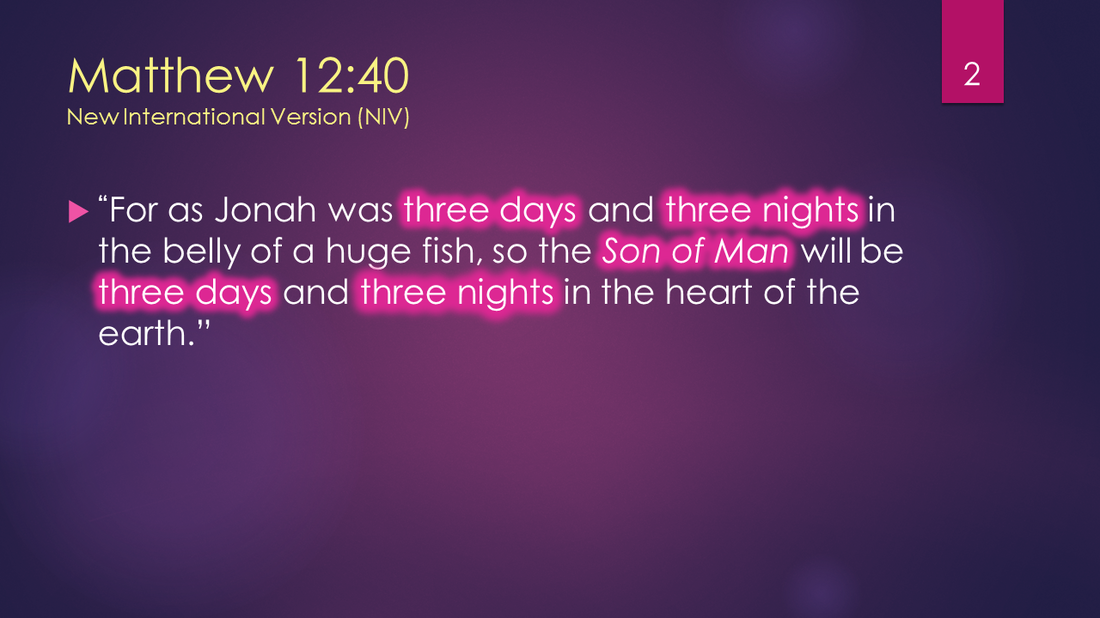
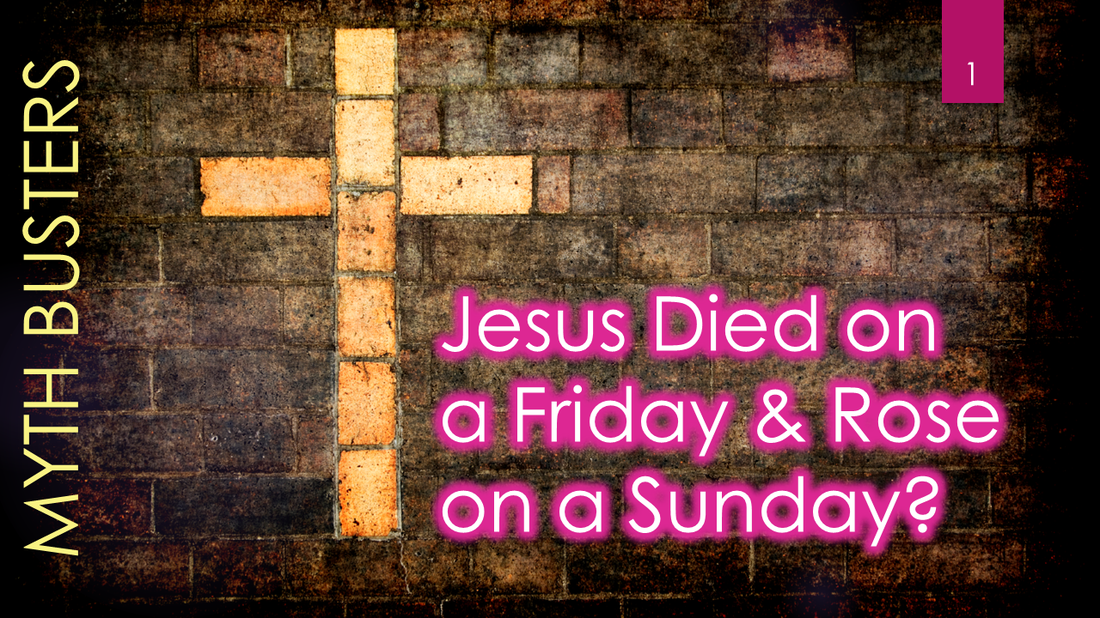
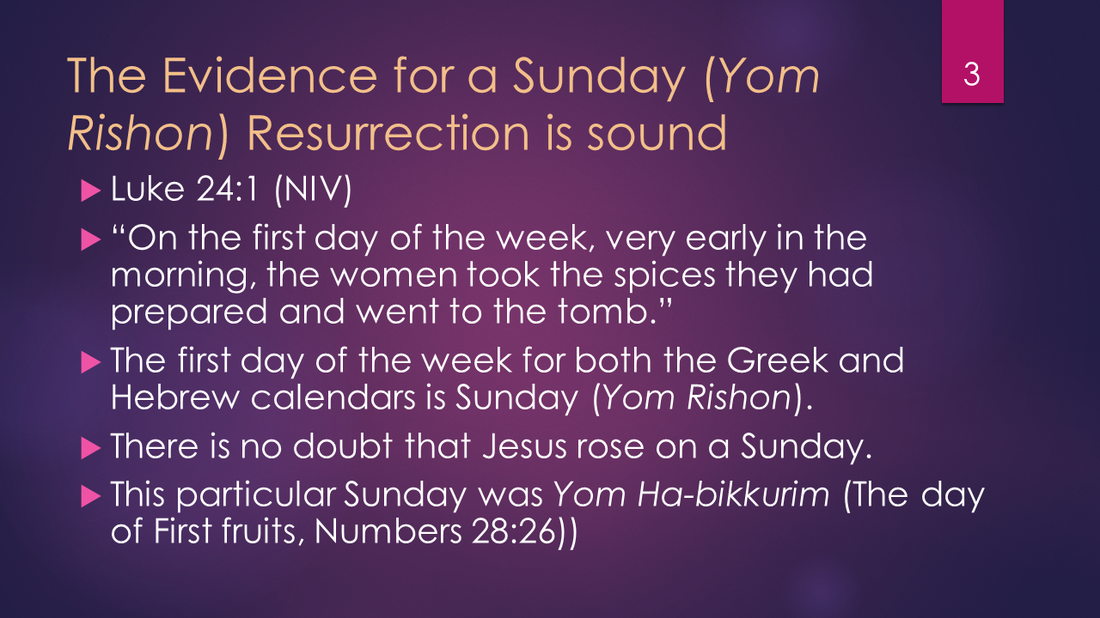
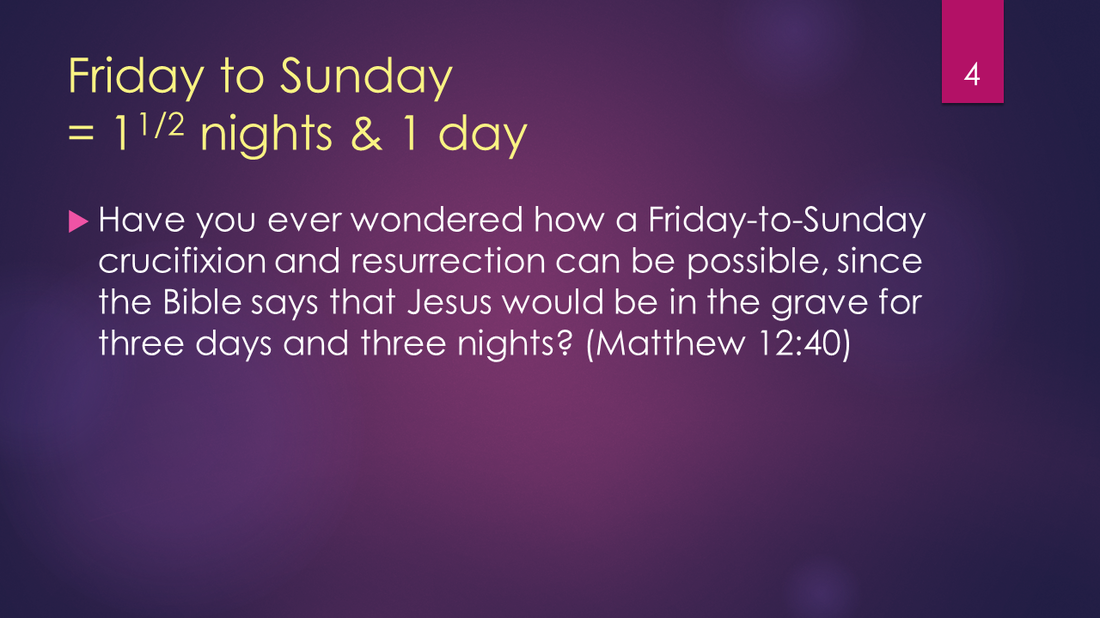
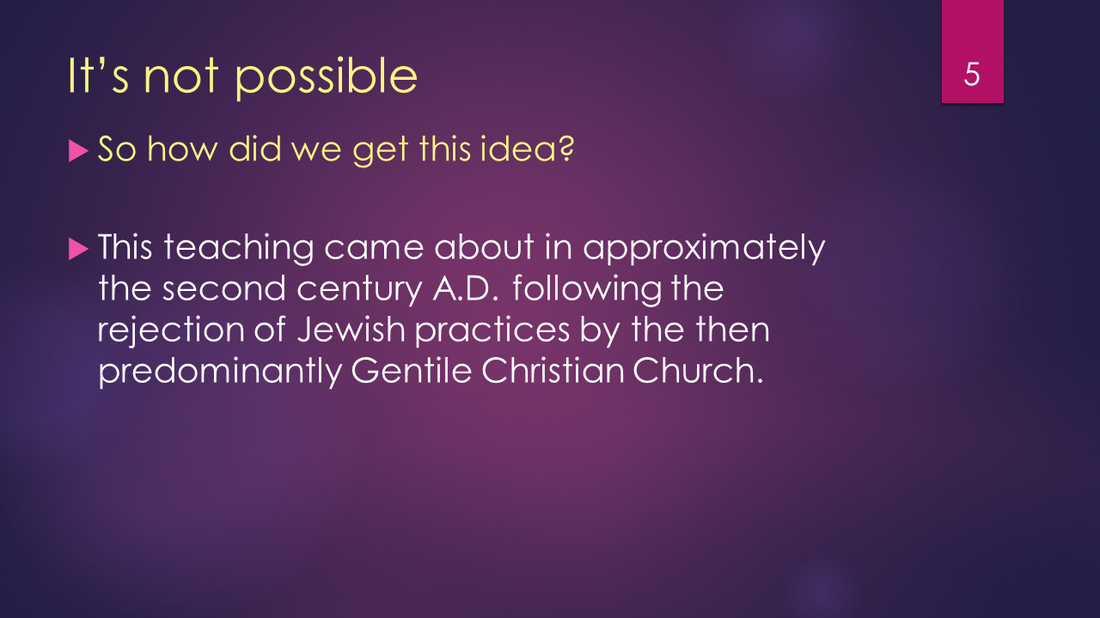
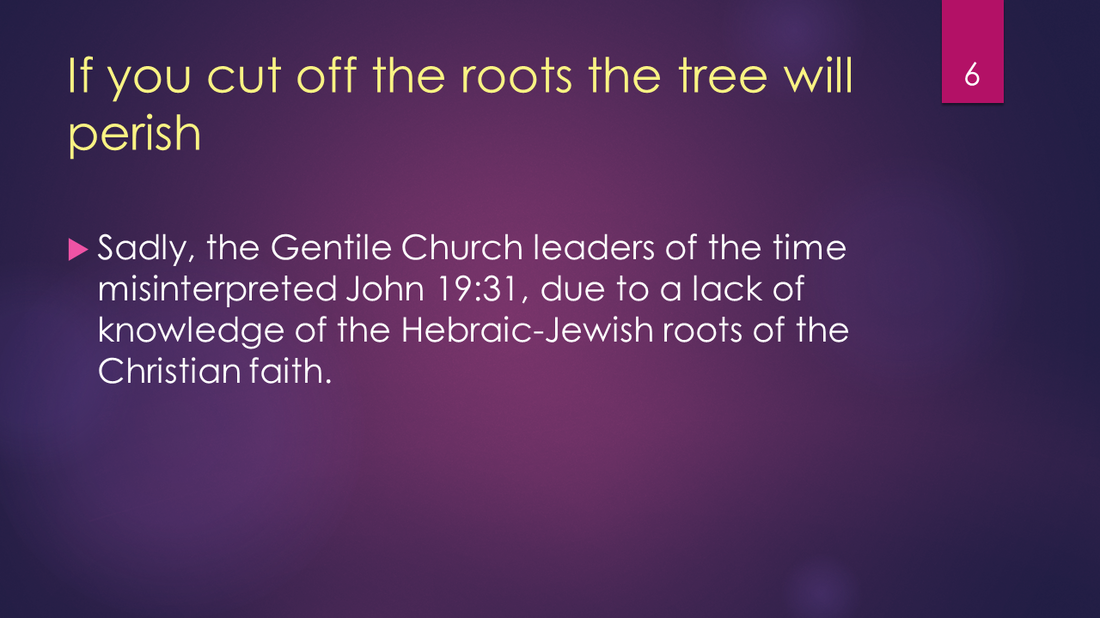
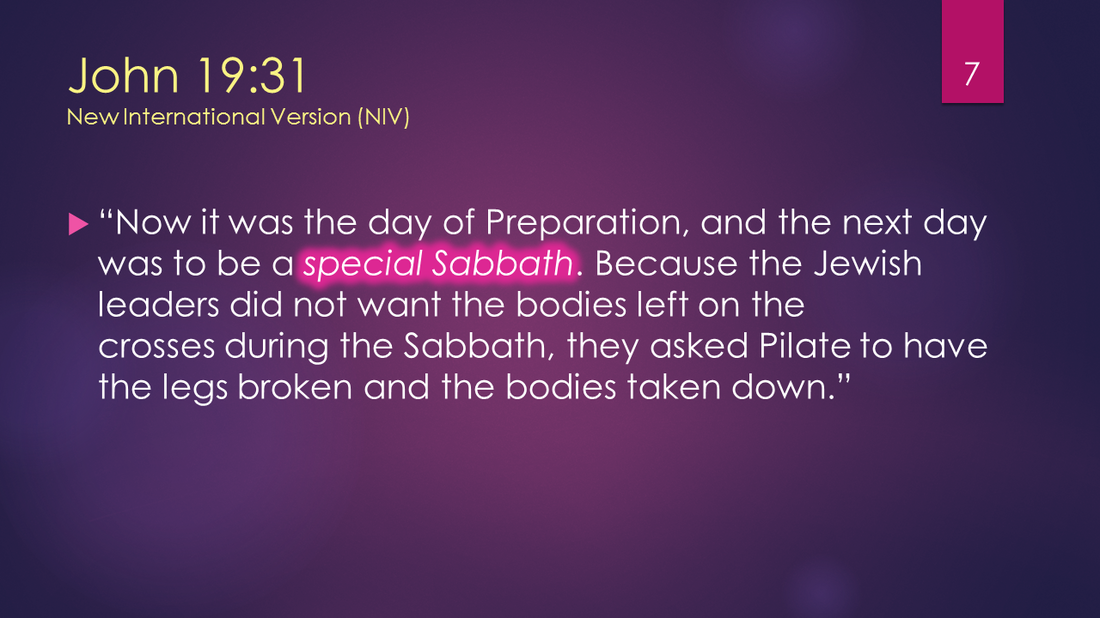
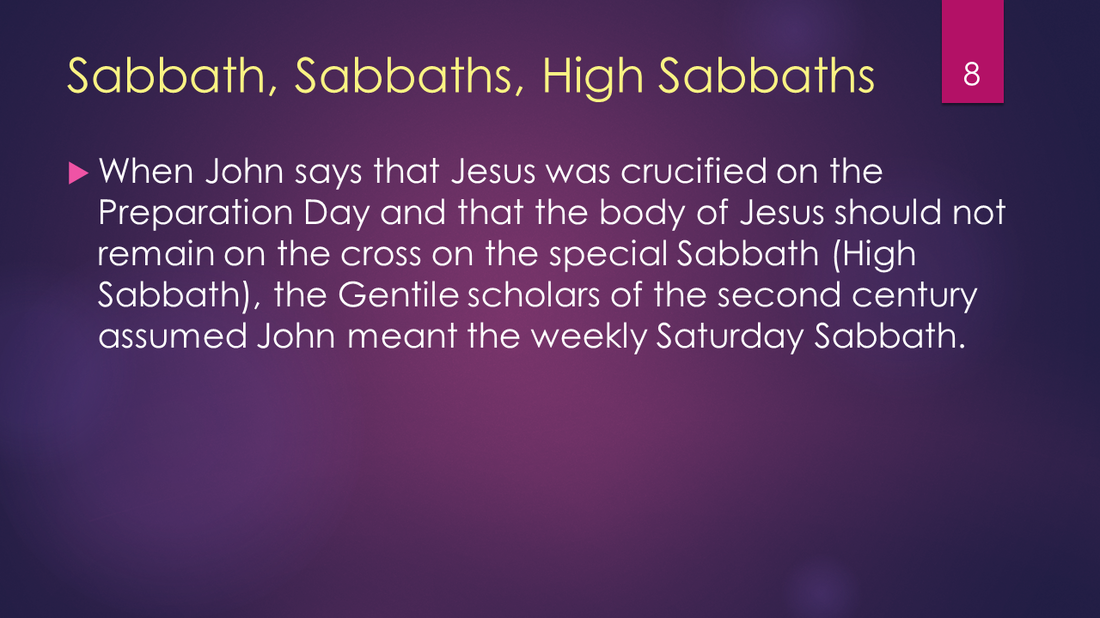
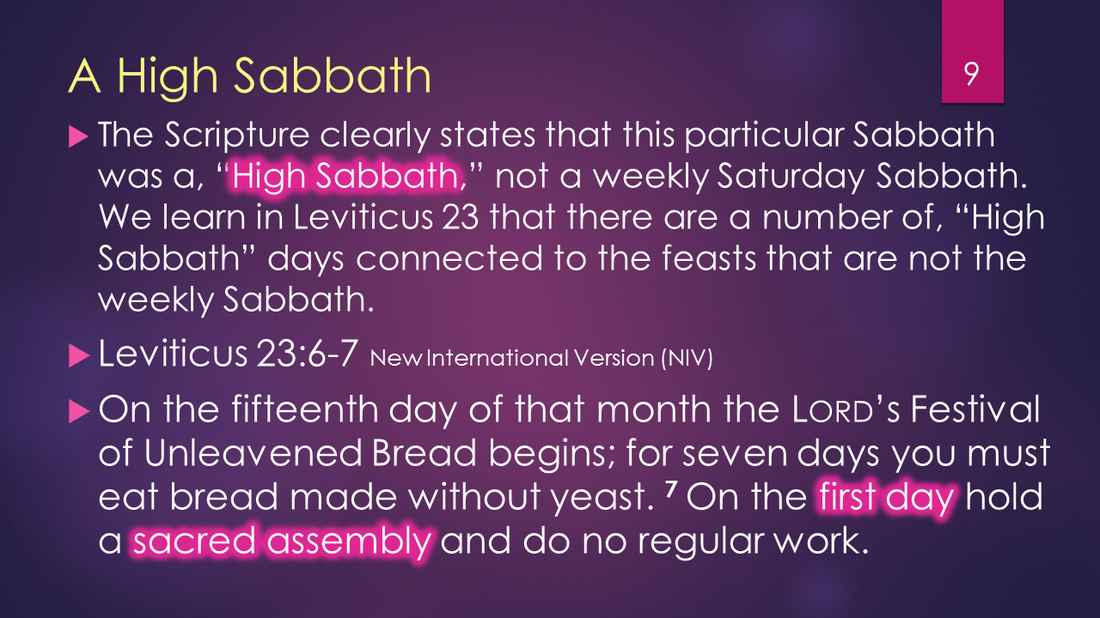
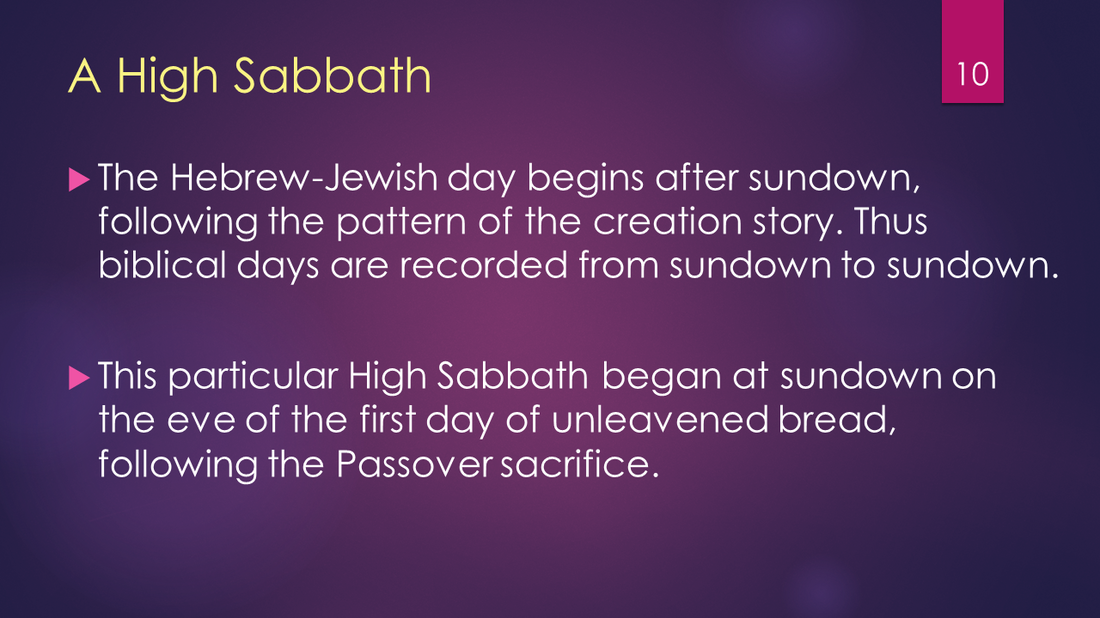
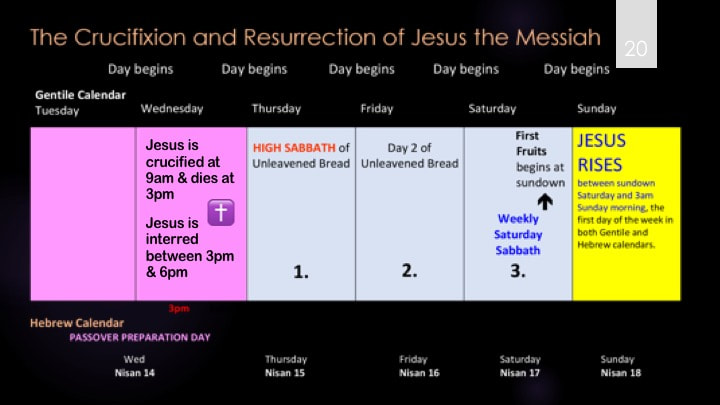
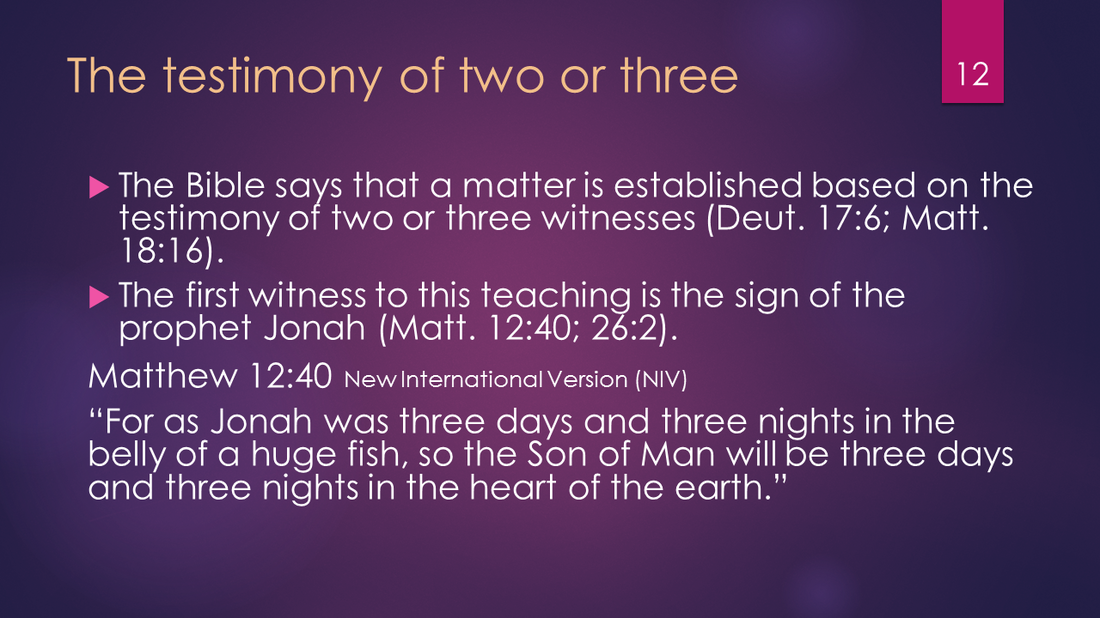
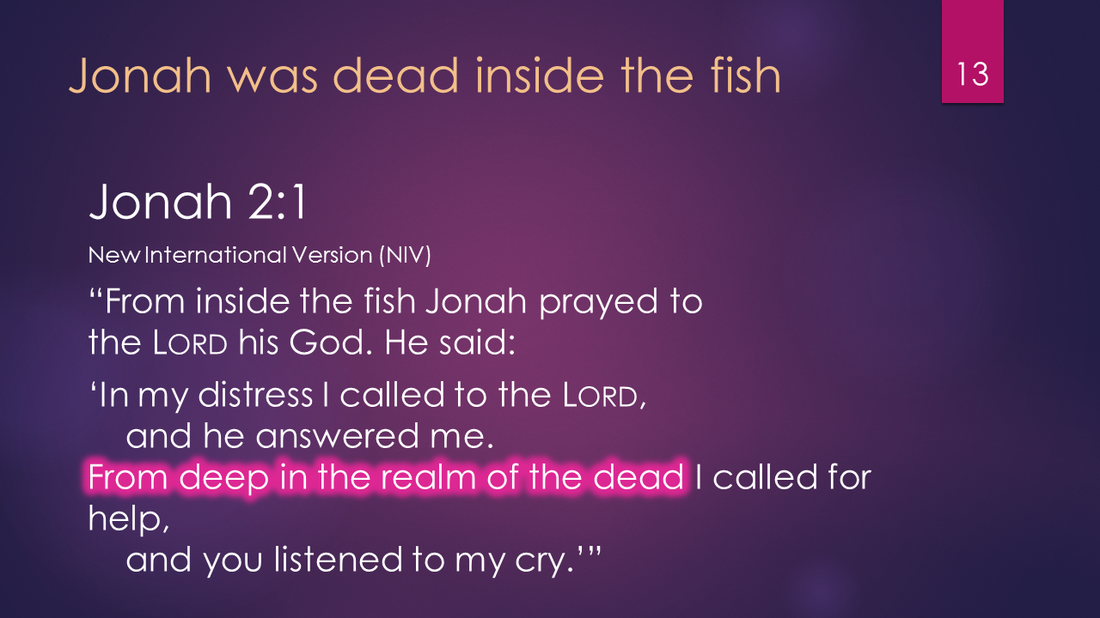
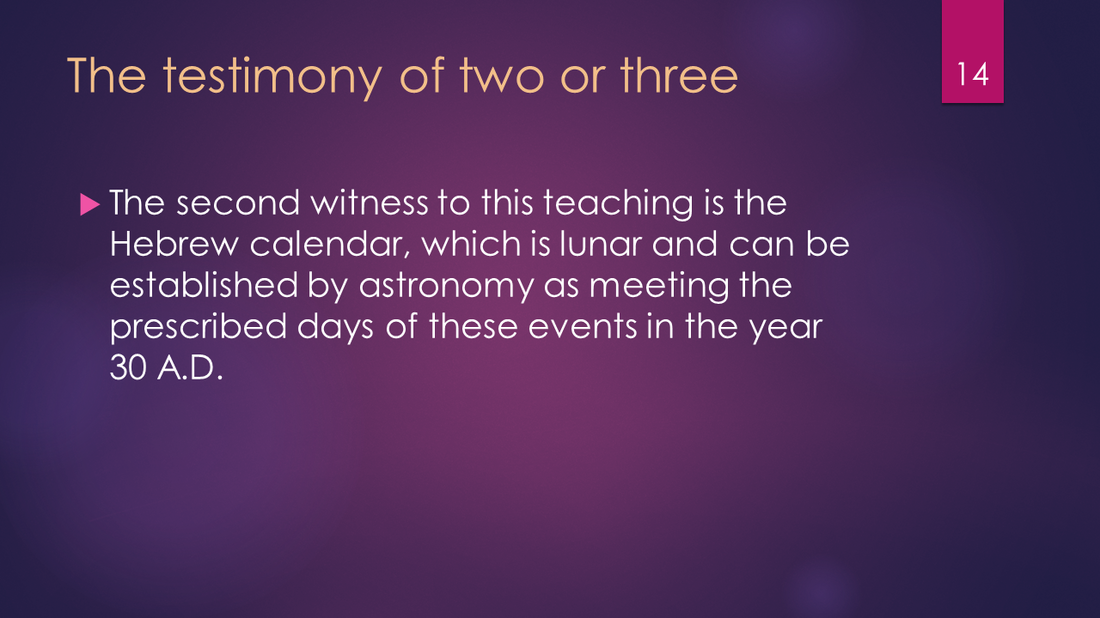
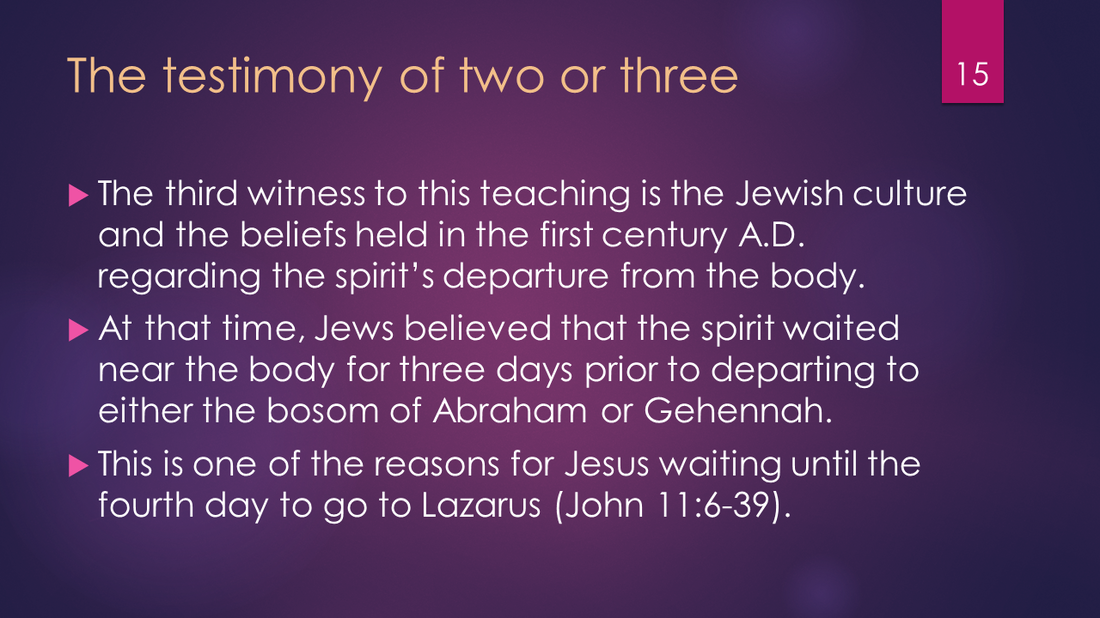
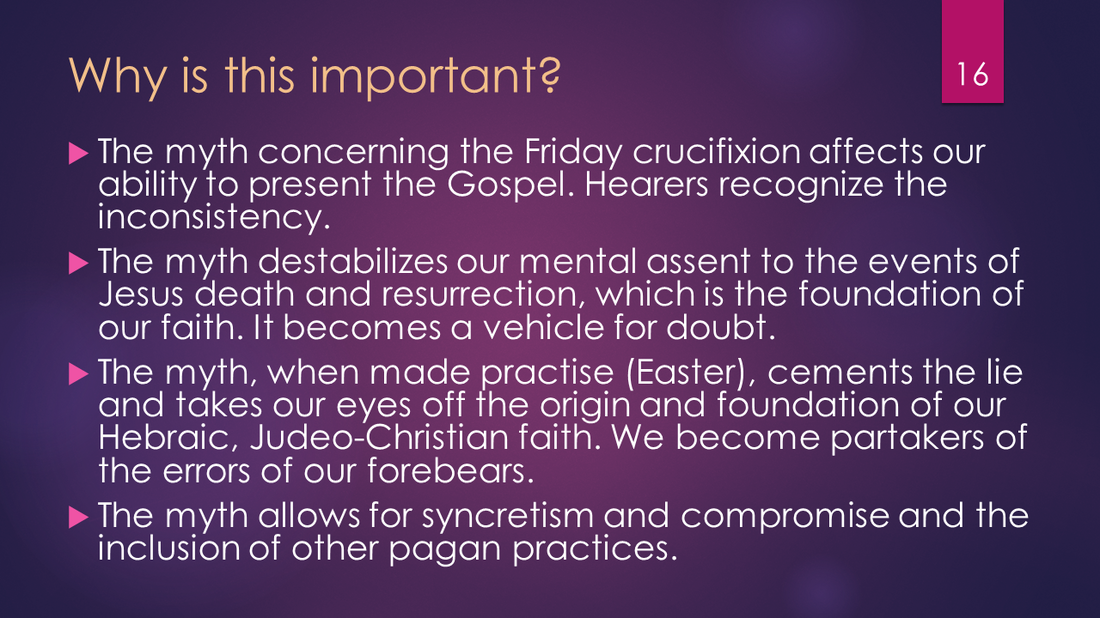
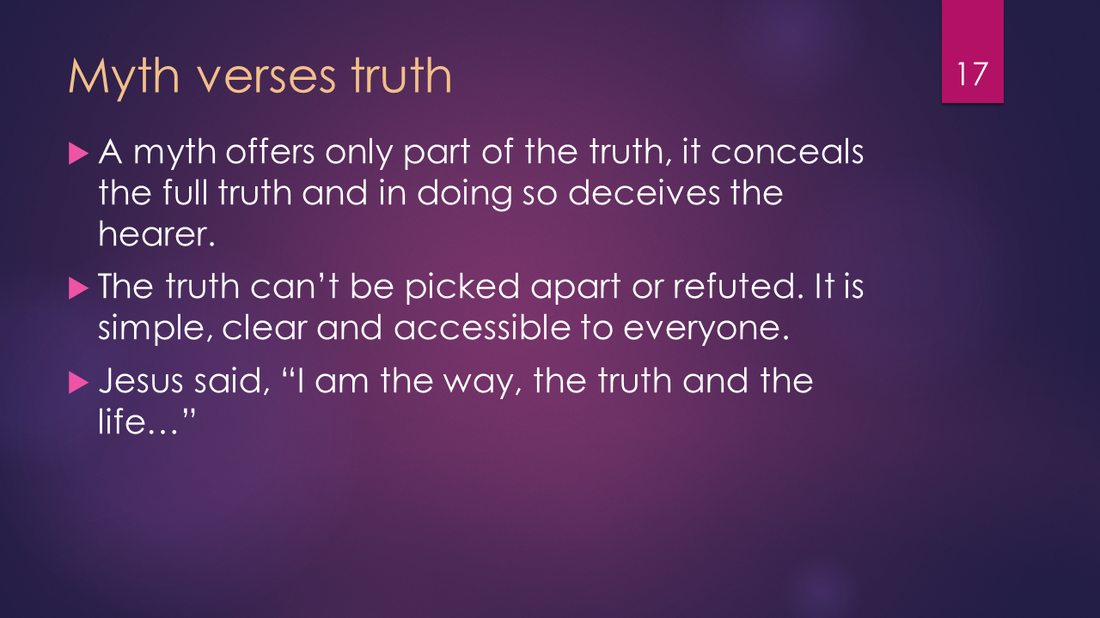
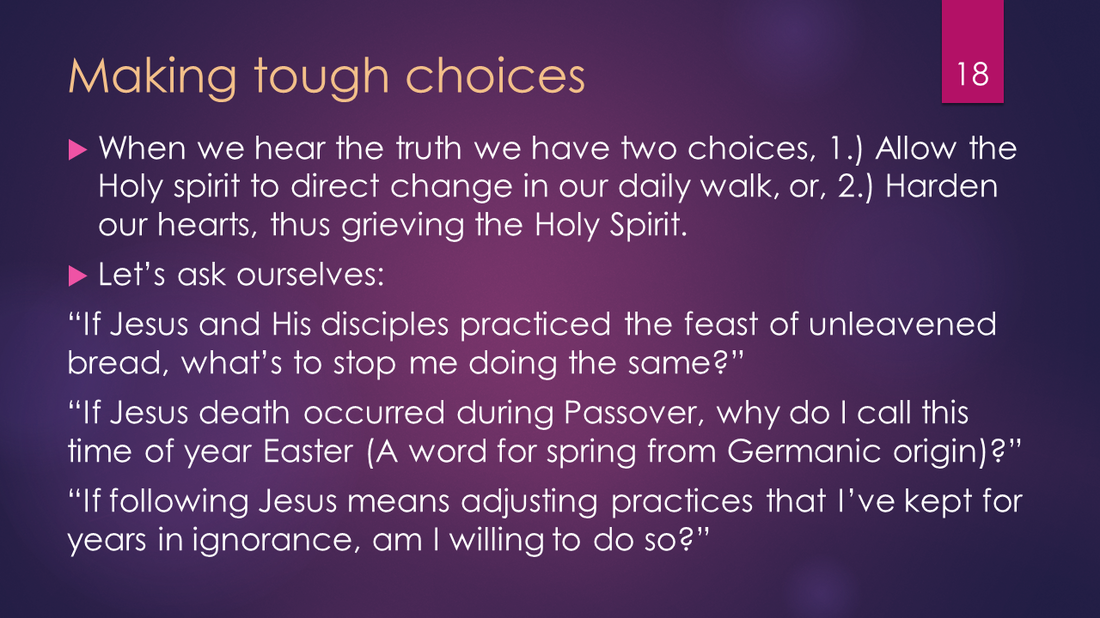


 RSS Feed
RSS Feed